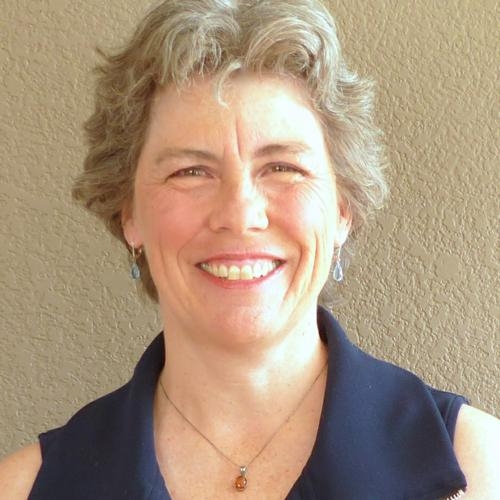 Neonatology Online Course(s) & Continuing Education
Neonatology Online Course(s) & Continuing Education
Access the latest clinical skills and research for Neonatology for Maternal Health professional training. These Neonatology online courses provide practice-changing skills and valuable perspectives from leading global experts. This Neonatology education has been accredited for a variety of CEUs / CERPs and can be accessed on-demand, at your own pace.

‘He Fought Like a Lion’: Using Trauma Resolution Approaches to Support Professionals and Families with Babies in the Neonatal Intensive Care Unit

Kate White is and award-winning craniosacral and massage therapist, prenatal and early childhood educator. She is trained in somatic therapies, prenatal and perinatal health, lactation, brain development, infant mental health, and has specialized in mother-baby dyad care using somatic prevention and trauma healing approaches for nearly 20 years. She is a mother of two children, holds a BA and MA in Communication, is a Registered Craniosacral Therapist in the Biodynamic Craniosacral method and a Somatic Experiencing® Practitioner. Her work combines somatic therapy with brain development to help give families with babies and small children the best possible start. She is Founding Director of Education for the Association for Prenatal and Perinatal Psychology and Health from 2013 – 2018 where she managed a large online educational program for professionals. She currently co-directs this program, administering an online program for parents and parent professionals, runs a private practice and offers her own seminars through the Center for Prenatal and Perinatal Programs, ppncenter.com.
Topic: Best Practices in Prenatal and Perinatal Psychology and Somatic Health for Optimal Birth Outcomes - [View Abstract]
Topic: Integration of the Science of Safety and Resilience into Perinatal Care: A 5 Step Process - [View Abstract]
Topic: The Science of Safety and Trauma Specific Recognition to Improve Birth Outcomes: What Does It Mean for the Midwife? - [View Abstract]
Topic: “It Was Right but so Wrong:” Helping Families Make Sense of Difficult Births with Trauma Sensitive and Prenatal and Perinatal Healing Approaches - [View Abstract]
Having a baby in the Neonatal Intensive Care Unit is one of the most stressful life events for a parent. The nervous system of babies and parents can go into survival mode, disrupting normal development, especially attachment and bonding. This presentation will detail the nervous system’s response to overwhelming births so that parents and professionals can better understand how to support themselves, their partners, parents and babies. Strategies for self-care and skills for increasing nervous system capacity for greater health will be presented. A successful story of reducing prematurity in a birth center will be presented.

A Neuroprotective Approach to Reduce the Risk for Intraventricular Hemorrhage (IVH) In ELBW Neonates

Sandy Jose, DNP, APRN, NNP-BC is a board certified Neonatal Nurse Practitioner (NNP) in the Level IV Neonatal Intensive Care Unit (NICU) at Texas Children’s Hospital. She completed her NNP education at Rush University in Chicago and her DNP at UT Cizik School of Nursing in Houston. Her passion for quality improvement has helped improve neurodevelopmental outcomes for preterm neonates by reducing the risk for intraventricular hemorrhage (IVH) through the establishment of her “Mindful of Preemies” protocol. She was also a key stakeholder for the development of Neuro-Protective Guidelines for the Small Baby Unit (SBU) Program for Extremely Low Birth Weight (ELBW) neonates. In addition, she continues to actively participate in various QI initiatives within the NICU.
Intraventricular hemorrhage (IVH) is a devastating and debilitating diagnosis commonly seen in premature neonates. Statistics indicate that 45% of extremely premature infants with very low birth weight develop IVH within the first week of life. IVH is associated with numerous acute and long-term neurologic and psychiatric complications. Additionally, it has led to a progressive increase in hospital costs and length of hospitalization.
IVH is multifactorial, but it is primarily attributed to the intrinsic fragility of the germinal matrix vasculature from prematurity and disturbances in the cerebral blood flow (CBF) from commonly seen complications in premature neonates. Seminal research studies support neurodevelopmental positioning (NDP) of high-risk preterm infants as a postnatal preventive approach to reduce the risk for IVH. Hospitals with low IVH rates utilize NDP.


Naomi Bar-Yam, PhD, ACSW, has been working in maternal and child health for over 30 years as an educator, researcher, advocate, and writer. She is the immediate past president of the Human Milk Banking Association of North America (HMBANA) and the founding director of Mothers’ Milk Bank Northeast, which provides safe donor milk to hospitals and families throughout the northeastern US. An expert on access to perinatal health care and policies that support breastfeeding, she has been a consultant to the Centers for Disease Control (on a panel that created “The CDC Guide to Breastfeeding Interventions”), to the United States Breastfeeding Committee (developing an issue paper addressed to CEOs and legislators on breastfeeding and the workplace), and to the March of Dimes (developing educational material for women and families who are medically and socially vulnerable to high-risk pregnancy). She also developed a curriculum for hospital personnel about combining breastfeeding with their work. She reviews articles submitted to the Journal of Human Lactation, Breastfeeding Medicine, and other publications related to breastfeeding, milk banking, and access to perinatal child care. As Executive Director of Mothers’ Milk Bank Northeast, she is thoroughly versed in the technical, procedural, and ethical aspects of milk banking. She often speaks at professional conferences, hospital staff trainings, and grand rounds about milk banking and breastfeeding policies.
Topic: Ethical Concerns in Human Milk Exchange - [View Abstract]
Topic: Getting Milk to Babies: Social, medical, economic and commercial forces - [View Abstract]
Topic: The Whys and Hows of Using Banked Donor Milk - [View Abstract]
This talk uses research literature and hospital policies and programs to explore ways for families of babies in the NICU to be meaningful and active members of the NICU care team. We will look at a global snapshot of prematurity; define what a team is and who is on the NICU care team; and discuss the short- and long-term goals of the NICU care team, as well as many tools and strategies that team members and the team as a whole have at their disposal to reach those goals. Can be adapted for US or global audiences.

View Details / Enroll

Advanced Postoperative Pain Management Strategies in the NICU

Teresa Puthoff, BS Pharm, PharmD, BCNSP received her professional degrees from the University of Cincinnati and The Ohio State University. She has over 30 years experience working in high risk delivery and referral centers. She currently works as an Advanced Practice Pharmacist in the NICU at Nationwide Children’s Hospital in Columbus Ohio. Her current professional passions are neonatal nutrition, developmental pharmacology, BPD, and analgesia and sedation management. She teaches PGY-1 and PGY-2 pharmacy residents as well as Neonatal Fellows in medicine, physical therapy and respiratory therapy. She has published on the use of regional analgesia in the NICU and is currently implementing the use of NCA and wound catheters for post op pain management as a part of ongoing efforts to reduce opioid and benzodiazepine use in the NICU.
There has been an evolution in knowledge regarding the consequences of untreated pain in the infant as well as the unintended long-term effects of providing systemic analgesics. Infants were often subjected to surgical procedures without analgesia until the landmark paper by Anand and Hickey demonstrated improved morbidity and mortality when proper anesthesia and analgesia were provided to infants undergoing surgical procedures. Early life stress and chronic pain has shown evidence of long-term adverse neurodevelopmental effects upto adulthood. An FDA Drug Safety Communication Alert advised practitioners that repeated or lengthy exposures to anesthetics and sedatives have the potential to have adverse effects on neurodevelopmental outcomes. Many anesthetics, benzodiazepines, and opiates act via NMDA (N-methyl-D-aspartate) receptor agonism, GABA (gamma amino butyric acid) agonism or both. Animal model studies have demonstrated neuro-apoptosis and subsequent cognitive impairments due to these drug-receptor interactions. Cumulative opioid exposure has been associated with adverse cognitive outcomes in former extremely low birth weight infants (ELBW). These concerns prompted many to pursue other pharmacologic modalities and surgical techniques to minimize the use of postoperative opioids. This lecture will discuss the use of Regional analgesia (RA) and Nurse Controlled Analgesia (NCA) in post operative infants in the NICU.


Consultant neonatal pediatrician with special interest in neonatal nutrition, probiotics, gut-brain-microbiota axis and long-term neurodevelopment. Dr Jape leads the high-risk neonatal follow-up program for her tertiary referral institute. Currently the chair for the Perinatal Society of Australia and New Zealand long-term outcomes sub-committee. Dr Jape is reviewer for national and international medical journals.
Topic: Gut-Microbiota-Brain Axis in Neonates and Infants - [View Abstract]
Infants admitted to neonatal intensive care units (very preterm and extremely preterm, term infants with HIE, term infants with surgical gut conditions) are at high-risk of suboptimal nutrition. They are at increased risk of poor growth and neurodevelopment in subsequent life. Improved enteral nutrition has been associated with better weight gain and improved neurocognitive outcomes in infancy , childhood and adolescence. This presentation aims to assess advances in enteral nutrition strategies across the different high-risk infant groups to highlight new research and optimize clinical care.

Advancing the Landscape of Neonatal Pain Management

Dr. Marsha Campbell-Yeo, a neonatal nurse practitioner and clinician scientist, is a Full Professor at the School of Nursing, Faculty of Health, Dalhousie University and holds cross appointments in the Department of Pediatrics, and Psychology and Neuroscience. Her Canada Foundation of Innovation funded research lab, MOM-LINC (Mechanisms, Outcome and Mobilization of Maternally-Led Interventions to Improve Newborn Care) is located at the IWK Health Centre. She primarily holds grants examining interventions to improve outcomes of medically at-risk newborns specifically related to pain, stress, and neurodevelopment as well as novel knowledge synthesis and dissemination methods, and digital e-heath interventions aimed at enhancing parental engagement.
She has been recognized for her contributions to the field via numerous awards. She has received an Honorary Doctorate from the Faculty of Medicine and Science from Orebro University, Sweden, and invited as a member of the Royal Society of Canada's College of New Scholars, Artists and Scientists, the recipient of the Inaugural Dalhousie University President's Award for research excellence, was named one of 150 Nurses championing innovation in health for Canada by the Canadian Nurses Association to mark the 150th anniversary of Confederation, a Canadian Institute of Health Research New Investigator Awardee, the Canadian Pain Society 2015 Early Career Awardee, and a Career Development Awardee of the Canadian Child Health Clinician Scientist Program. She is President-Elect of the Pain in Childhood Special Interest Group of the International Association for the Study of Pain, an Executive member of the Council of International Neonatal Nurses, and the Inaugural Chair of the Canadian Premature Babies Foundation Scientific Advisory Committee. Follow her on Twitter @DrMCampbellYeo
Topic: Why Are We Still Hurting Babies: Provider And Parent-led Interventions For The Treatment And Prevention Of Procedural Pain - [View Abstract]

Adverse Babyhood Experiences (ABEs): 10 Indicators of Risk for Infant and Maternal Complications that Highlight Opportunities for Prevention and Repair

Dr. Veronique Mead was a family physician and assistant professor with an obstetrical practice before leaving medicine because she felt she was causing harm. Retraining as a somatic therapist provided insights through a comprehensive understanding of trauma. She has been aggregating the large bodies of evidence revealing how adversity influences health for two decades.
Dr. Mead has developed Adverse Babyhood Experiences (ABEs) to identify risk factors for maternal and infant mortality and morbidity, chronic illness and other effects. ABEs focus on risk from preconception to a child’s 3rd birthday to emphasize how effects of trauma are influenced by epigenetic and other nonpsychological mechanisms. Her focus highlights how opportunities for prevention, healing and repair are greater than has been recognized. Dr. Mead is a speaker, educator, and writer who shares the science on her blog, Chronic Illness Trauma Studies.
Maternal mortality rates are improving around the world but preventable deaths remain unacceptably high, such as in the US where rates are the highest of any developed country, continue to increase, and are associated with severe racial disparities.
Adverse babyhood experiences (ABEs) are a new construct identifying 10 categories of adversity that increase risk for complications and death in mothers and infants. In this emerging era of trauma-informed care, ABEs provide opportunities to optimize resilience through practical strategies for prevention, treatment and repair. ABEs serve as indicators of risk for low birth weight, preterm birth, neonatal intensive care, and chronic illness later in life, among other poor outcomes for infants; and for miscarriage, still birth, other complications and negative outcomes for mothers, including postpartum depression, which is a leading cause of maternal death. ABEs further the science of adverse childhood experiences to highlight a distinct group of risk factors occurring prior to a child’s 3rd birthday.
Attendees will be able to identify early indicators of risk in babies and parents; understand how effects of trauma occur through epigenetics and are not psychological; learn of practices for reducing risk in the sensitive periods before and after birth, and for repairing effects of ABEs later in life; and part with knowledge to inform choices in management and treatment interventions that optimize clinical outcomes.


Dr. Tinisha Lambeth is the Neonatal Quality Improvement Coordinator and an Assistant Professor of Pediatrics at Wake Forest School of Medicine. She coordinates quality improvement at Novant Health Forsyth Medical Center NICU as well. She is a Neonatal Nurse Practitioner and received her MSN (2004) & DNP (2014) from Duke University School of Nursing. Over the past 8 years, Tinisha has presented quality improvement work locally, nationally, & internationally. She has co-authored three publications, on the topics of cytomegalovirus, golden hour and the association of different feeding types with necrotizing enterocolitis and growth in premature infants.
Early- and late-onset sepsis is a significant cause of morbidity and mortality in neonates. However, prolonged antibiotic administration alters the microbiome and increases the risk of necrotizing enterocolitis, sepsis, and death in very low birth weight infants and in late preterm and term infants adverse effects include ototoxicity, nephrotoxicity, increased bacterial resistance, and unnecessary costs. Empiric antibiotic therapy for early-onset sepsis and routine Vancomycin usage for late-onset sepsis was a common practice for neonates at this neonatal intensive care unit. Also, antibiotic stewardship in early- and late-onset sepsis management in the NICU posed unique challenges due to variability in provider practices. In this presentation the Model for Improvement quality improvement methodology and three quality improvement projects with a global aim to reduce antibiotic usage will be presented.

View Details / Enroll

Antibiotics in the NICU: Practical Understanding of Bugs & Drugs

I have been working in the neonatal area for about 40 years. I received my BSN from Grand Valley State University in Grand Rapids, Michigan. I began working in the NICU right after graduation at Bronson Methodist Hospital in Kalamazoo, MI. I then moved to Detroit and worked at Henry Ford Hospital for 7 years as an RN, Perinatal Educator, Clinical Nurse Specialist, and NNP. I completed my MSN at Wayne State University. I was the first NNP in Michigan, and after leaving Henry Ford, I started working at St. Joseph’s Hospital in Ann Arbor. We moved to Arizona in 1985. I worked at St. Joseph’s Hospital & Medical Center in Phoenix and Banner Desert Medical Center in Mesa (including time at other Banner facilities at Baywood, Mesa Lutheran, and Thunderbird). I completed my PhD at the University of Arizona in Tucson in 2005, and moved to Omaha, NE to begin teaching in the NNP program at Creighton University. I have continued to work most weekends in the NICUs at Methodist Women’s Hospital, Creighton University Medical Center, Lakeside Hospital, and Bergan Mercy Medical Center (CHI Health). I love both teaching and the clinical aspects of the NNP role. I love working with students and helping them “get” the connection between physiology and the disease. I also get a “kick” out of attending deliveries, bagging infants, and intubating them!! I love that adrenaline rush! I also enjoy biking, reading a good novel, and enjoy roller blading (until I broke my leg 4 years ago). I have been pretty cautious with my roller skating since then. I have two sons – one in college and one who recently graduated from college and is working in downtown San Francisco. My husband and I love to travel (when I get time off) and have done some kayaking on the beautiful Nebraska lakes.
This talk will discuss the bacteria seen in the NICU and the groups of antibiotics that are used to treat them, differentiating between empiric therapy and directed therapy. The antibiotics covered will be penicillins, cephalosporins, aminoglycosides, macrolides, carbapenems and vancomycin. Antibiotic resistance patterms and possible new therapies will also be discussed.


Dr. Elizabeth Sharpe is a neonatal nurse practitioner and vascular access specialist with over 25 years of experience in Level II and Level III NICUs. She is an Associate Professor Clinical Nursing at The Ohio State University and Specialty Track Director of the Neonatal Nurse Practitioner Specialty in the Master of Science Graduate Nursing Program. Her unique contributions focus on education, vascular access, simulation, and harm prevention. She is the coauthor of the National Association of Neonatal Nurses (NANN) Guideline for Practice: Neonatal Peripherally Inserted Central Catheters, 3rd Edition, and has authored numerous publications. Dr. Sharpe has served two terms on the Board of Directors of the National Association of Neonatal Nurses (NANN.org) and currently serves as the NANN liaison to the Council of International Neonatal Nurses. She was honored to be named the 1st Janet Pettit Scholar by the Association for Vascular Access (avainfo.org) and a Fellow of the American Association of Nurse Practitioners and the National Academies of Practice.
Our special babies present unique challenges in vascular access. This presentation will highlight different methods of vascular access in neonates and infants including anatomy, therapy and patient characteristics. This will provide baseline information regarding guidelines for proper placement of umbilical catheters, surgically-inserted, peripherally inserted central catheters (PICC), midline and peripheral intravenous catheter. This is essential to building the knowledge base of new nurses and will update advanced neonatal nurses.

View Details / Enroll














